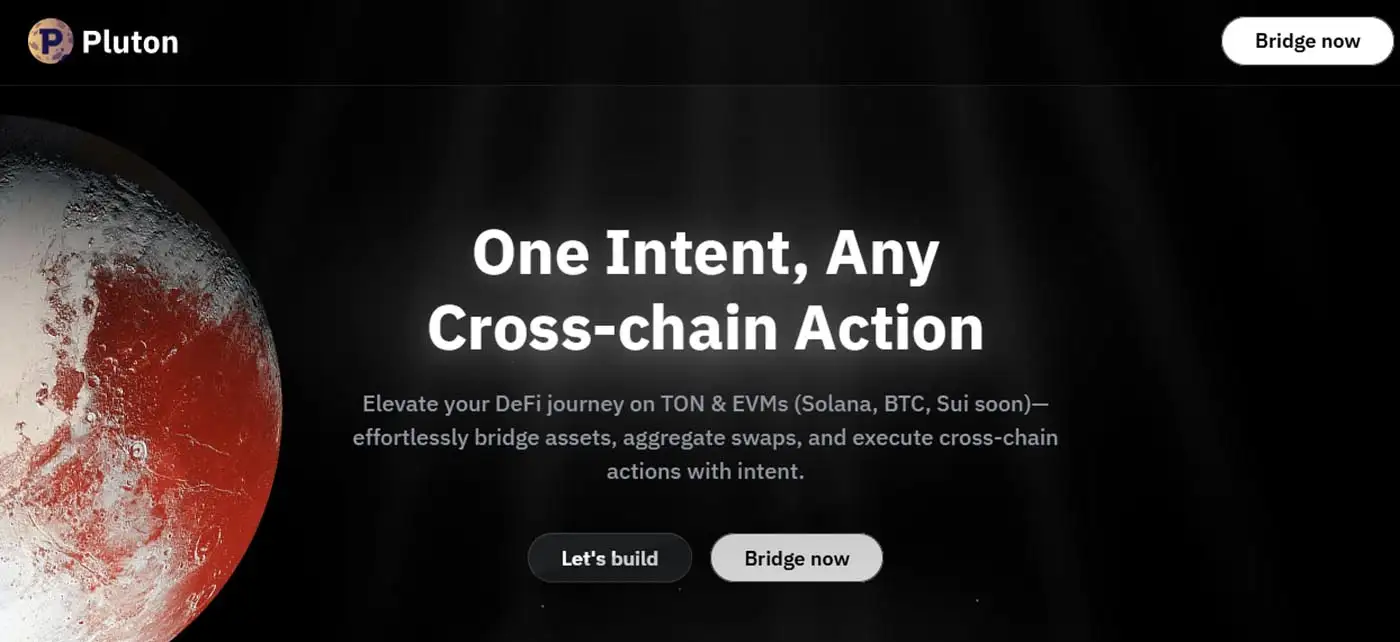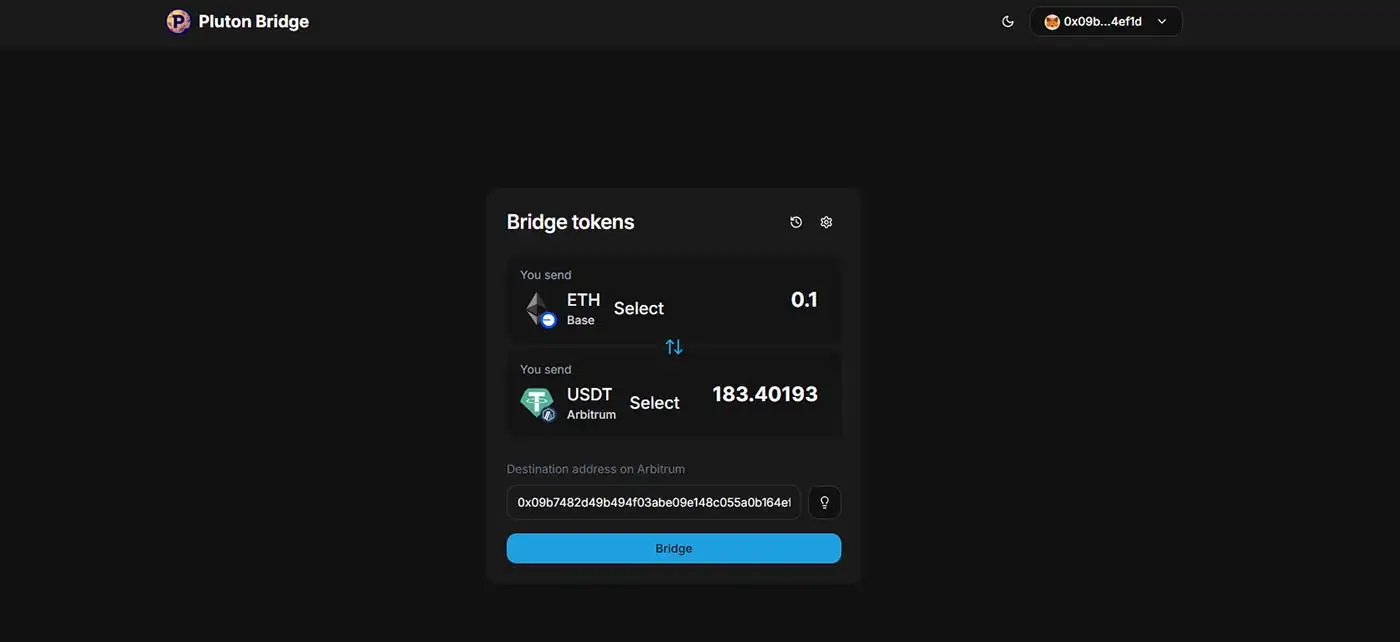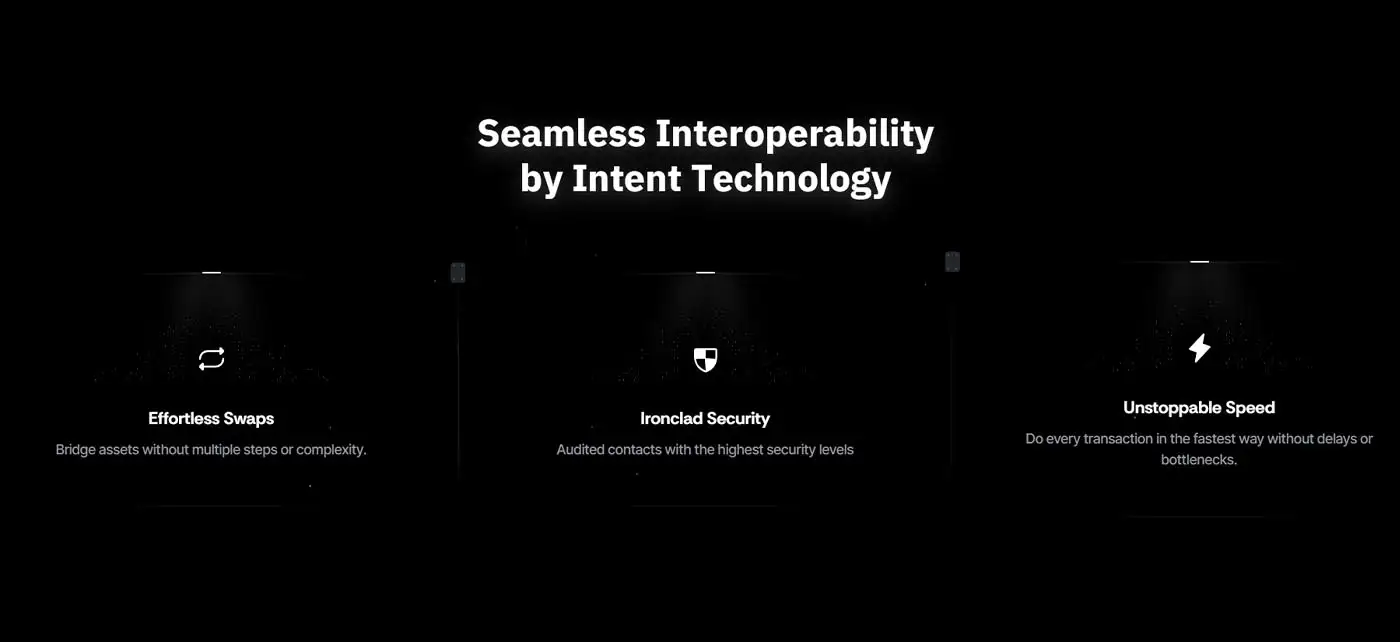About Pluton Finance
Pluton Finance is redefining the way users interact with cross-chain DeFi by removing complexity from the equation. Powered by an intent-based execution layer, it allows users to seamlessly bridge, swap, and manage assets across multiple ecosystems—including TON, EVM-compatible chains, and soon Solana, BTC, and Sui. With Pluton Finance, actions that once required multiple steps and manual confirmations are now executed with a single intent.
Rather than forcing users to understand the intricacies of blockchain logistics, Pluton automates execution through a powerful network of solvers and a secure settlement system. This ensures the most efficient path is chosen instantly—providing fast, safe, and low-cost transactions. The protocol is not only user-friendly but also developer-ready, featuring modular architecture and quick integrations that make it easy to onboard cross-chain capabilities into any dApp or Web3 product.
Pluton Finance is a decentralized, intent-powered cross-chain bridge and transaction engine, engineered for simplicity, speed, and scalability. At its core, Pluton eliminates multi-step DeFi interactions by allowing users to express a single intent—such as bridging an asset or swapping across chains—and handles everything else automatically. Designed to support TON and EVM blockchains, with future integrations including Solana, Bitcoin, and Sui, Pluton Finance is building a new standard for composability in Web3.
The protocol functions on three modular layers: a quote matching layer that fetches and displays the best options, a solver layer that identifies the fastest and most cost-efficient routes, and a secure settlement layer that finalizes transactions trustlessly. These layers form a robust framework for cross-chain liquidity movement without reliance on traditional, error-prone bridges. The system uses real-time quotes submitted by solvers who compete to offer users the highest output with the lowest cost—creating a decentralized routing marketplace governed by logic and performance.
Pluton's roadmap includes advanced interoperability with non-EVM chains and new products like an Intent Marketplace, a Telegram mini app for trading, and in-game purchases for Telegram games. Its vision of abstracting blockchain complexity while maintaining full user sovereignty places it among a select group of protocols revolutionizing the future of blockchain usability. Competing platforms such as Rango Exchange, Socket, and LI.FI are in the same interoperability space, but Pluton's focus on intent-driven architecture makes it uniquely positioned.
Pluton Finance delivers a host of transformative benefits and features for both users and developers in the interoperability space:
- Intent-Based Interaction: Users define a goal—not a set of actions—and Pluton handles the rest via its intent engine, radically simplifying the cross-chain experience.
- Modular Execution Layers: With distinct layers for quoting, solving, and secure settlement, Pluton enables plug-and-play DeFi architecture.
- Solver Network Competition: Solvers compete to offer the best route, optimizing for lowest cost and highest output, improving fairness and performance.
- Fast Execution: Transactions are completed with minimal delay, enabling real-time bridging and swapping across supported chains.
- Secure Settlements: Trustless and fully verified settlement systems guarantee user fund safety during every cross-chain transaction.
- Developer Friendly: Easy-to-integrate SDKs and integration docs allow devs to embed cross-chain capabilities in minutes.
- Scalable Roadmap: Expansion to Solana, BTC, Sui, and future Intent VMs ensures long-term relevance and adaptability.
Pluton Finance enables users to interact with cross-chain DeFi through a seamless intent-based design. Here's how to get started with Pluton Finance:
- Step 1: Connect Your Wallet: Head to the official site and connect your preferred wallet like MetaMask or other EVM-compatible options.
- Step 2: Submit an Intent: Define what you want to do (e.g., bridge ETH from Arbitrum to TON) and submit the request through the interface.
- Step 3: Receive Quotes: Pluton queries its solver network for the most efficient execution path, selecting the best quote automatically.
- Step 4: Confirm & Send: Review the suggested quote, confirm, and send your transaction on the source chain.
- Step 5: Cross-Chain Execution: The selected solver processes the request and settles your assets on the destination chain with full auditable transparency.
- Step 6: Track & Verify: After completion, Pluton confirms the settlement and notifies you—your transaction is done.
- Need Technical Details? Developers can visit the official integration guide for setup instructions and SDK documentation.
Pluton Finance Reviews by Real Users
Pluton Finance FAQ
Pluton Finance uses a decentralized solver layer to determine the best execution route for your intent. When you initiate a transaction, the system broadcasts your request to multiple solvers. Each solver submits a quote with output values and route details. The quote with the highest return and lowest fee is selected automatically, ensuring you get the most value. This mechanism allows Pluton Finance to adapt dynamically to real-time market conditions.
An Intent in Pluton Finance refers to a user-defined goal like "bridge 1 ETH to TON" or "swap USDC on Arbitrum to BTC on Bitcoin." Instead of executing each step manually, Pluton abstracts the process and handles the necessary on-chain operations for you. It’s a shift from task-based to outcome-based interaction—empowering users to focus on results while Pluton manages execution logic across chains.
While Pluton Finance currently supports TON and major EVM-compatible chains, it is actively expanding to support Solana, Bitcoin, Sui, and more. If your chain or token is not yet live, you can follow the roadmap for expected timelines. Developers can also contribute integrations or build solvers to support new assets ahead of official rollouts.
Solver failures are rare due to Pluton's robust architecture, but if they occur, the system detects the failed state and does not finalize the settlement. Your funds remain safe on the source chain. All solvers are required to meet strict execution guarantees, and Pluton verifies every settlement before generating final signatures. This ensures trustless and secure cross-chain execution at all times via Pluton Finance.
Yes, Pluton Finance features a decentralized solver ecosystem. Developers can register, test, and deploy their own solvers to compete in quoting cross-chain routes. This creates an open market of execution agents and allows new participants to contribute innovation while earning fees. Full technical guidance is available in the integration docs.
You Might Also Like












